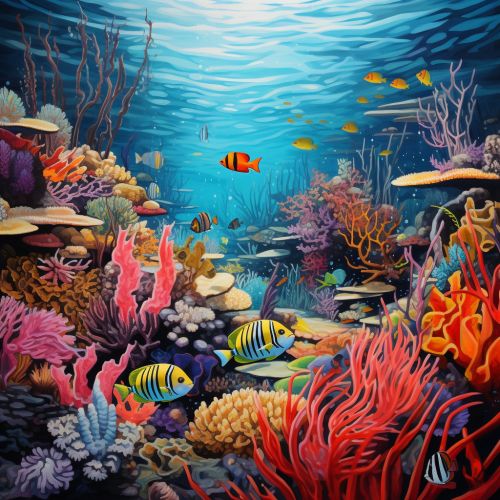Coral Reef Resilience
Introduction
Coral reefs are among the most biologically diverse and economically valuable ecosystems on Earth. They provide essential goods and services to millions of people worldwide. However, these ecosystems are increasingly threatened by human activities and climate change. Coral reef resilience refers to the ability of coral reefs to resist and recover from disturbances while maintaining key functions and services. Understanding and enhancing coral reef resilience is critical for the conservation and management of these important ecosystems.
Coral Reef Ecosystems
Coral reefs are underwater structures made from calcium carbonate secreted by corals. Corals are colonies of tiny animals found in marine waters that contain few nutrients. Most coral reefs are built from stony corals, which in turn consist of polyps that cluster in groups. The polyps belong to a group of animals known as Cnidaria, which also includes sea anemones and jellyfish.


Coral Reef Resilience
Coral reef resilience is the capacity of a reef to resist and/or recover from disturbances without undergoing a phase shift to an alternate state, where key ecosystem processes are fundamentally altered. Resilience depends on a variety of factors, including the intensity and frequency of disturbances, the biological characteristics of the coral community, and the health of the wider ecosystem.
Factors Influencing Coral Reef Resilience
There are several factors that influence the resilience of coral reefs. These include:
- Biological diversity: A high level of biological diversity can enhance resilience by providing a greater range of responses to environmental change.
- Coral health: Healthy corals are more likely to survive disturbances and recover more quickly.
- Connectivity: Coral reefs that are well-connected to other reefs by ocean currents can recover more quickly from disturbances because they can be reseeded with coral larvae from undisturbed areas.
- Water quality: Good water quality is essential for coral health and resilience. Pollution can reduce resilience by causing stress to corals and other reef organisms.
- Climate change: Climate change is a major threat to coral reef resilience. Rising sea temperatures can cause coral bleaching, while ocean acidification can reduce the ability of corals to build their skeletons.
Strategies for Enhancing Coral Reef Resilience
There are several strategies that can be used to enhance the resilience of coral reefs. These include:
- Protecting biodiversity: This can be achieved through the establishment of marine protected areas and the enforcement of regulations to prevent overfishing and destructive fishing practices.
- Reducing pollution: This can be achieved through improved waste management and the implementation of regulations to control the discharge of pollutants into the marine environment.
- Managing climate change: This involves reducing greenhouse gas emissions to mitigate the impacts of climate change. It also involves developing strategies to help coral reefs adapt to changing conditions.
- Restoring damaged reefs: This can involve a variety of techniques, including coral transplantation, the use of artificial structures to provide habitat for corals, and the cultivation of corals in nurseries for later transplantation to the reef.
Conclusion
Coral reef resilience is a critical factor in the survival of these vital ecosystems in the face of increasing environmental threats. By understanding the factors that influence resilience and implementing strategies to enhance resilience, it is possible to conserve and protect coral reefs for future generations.
